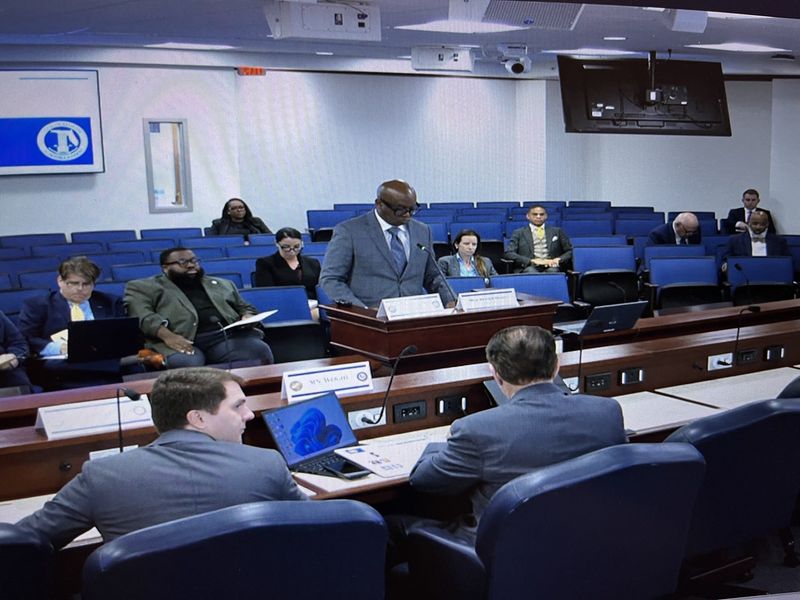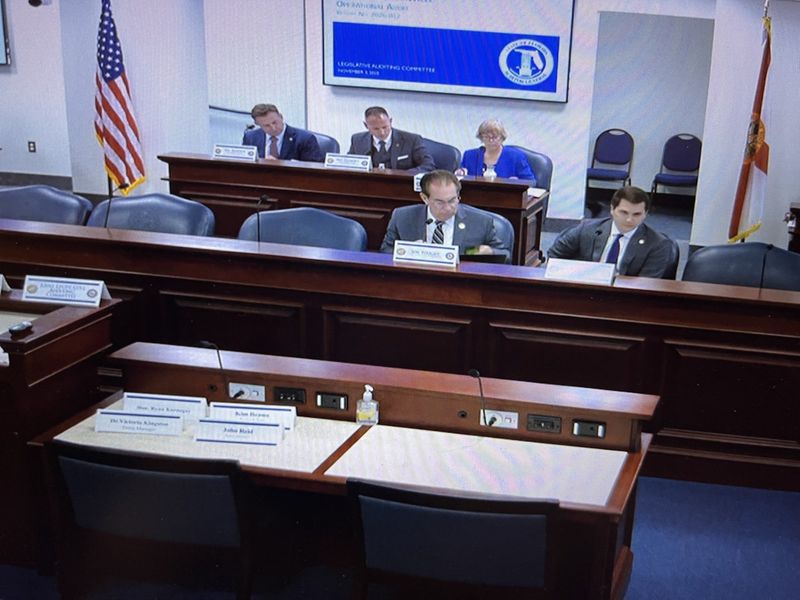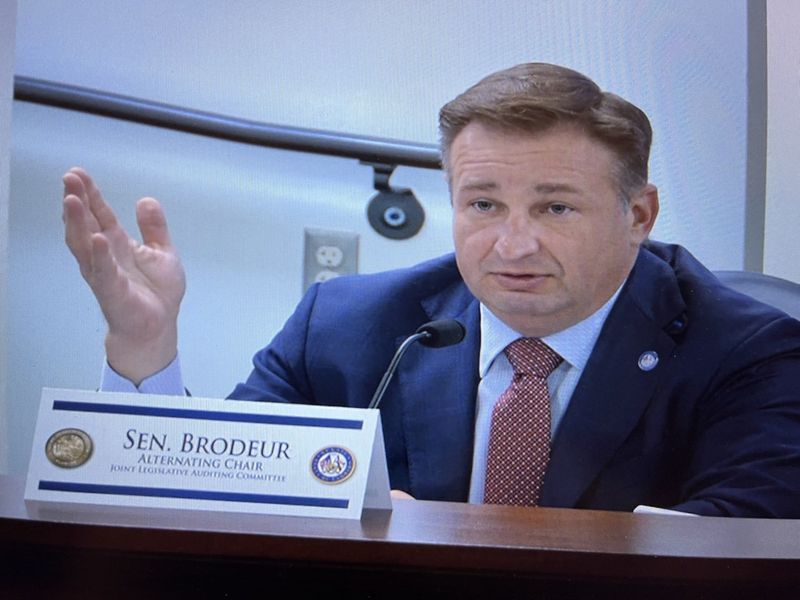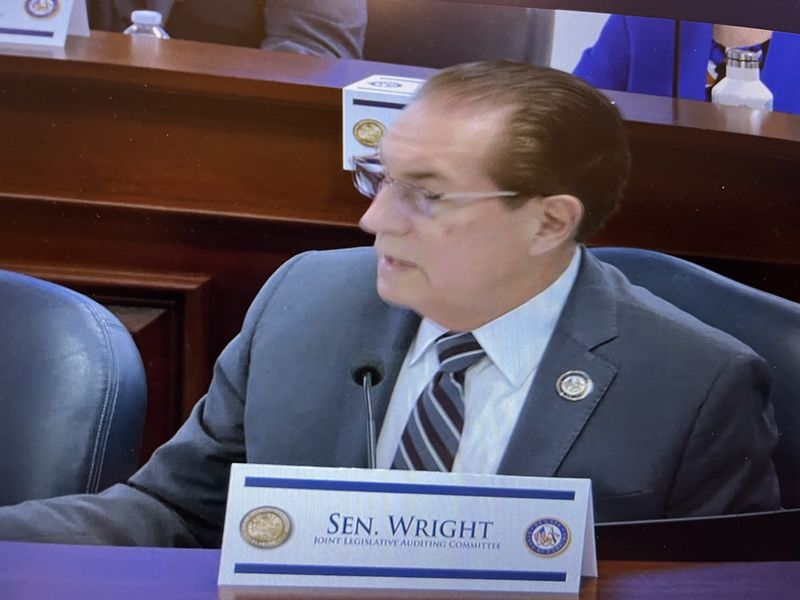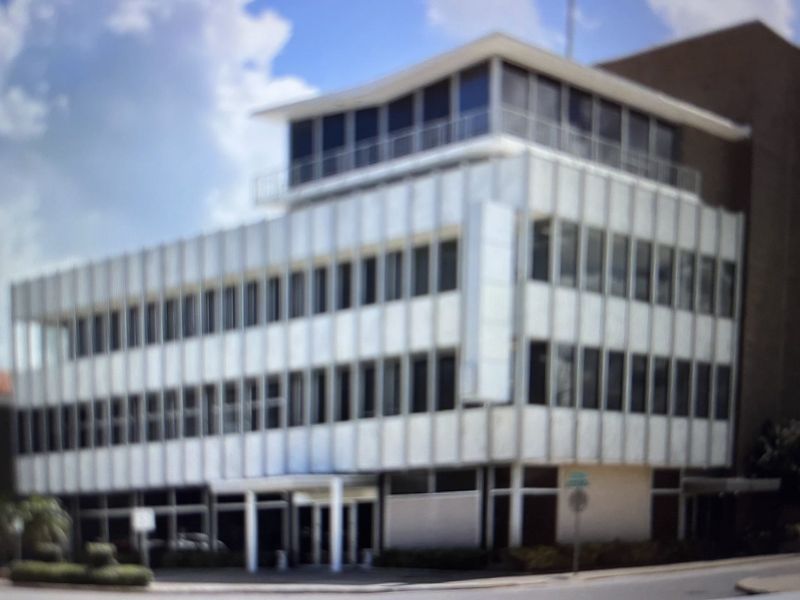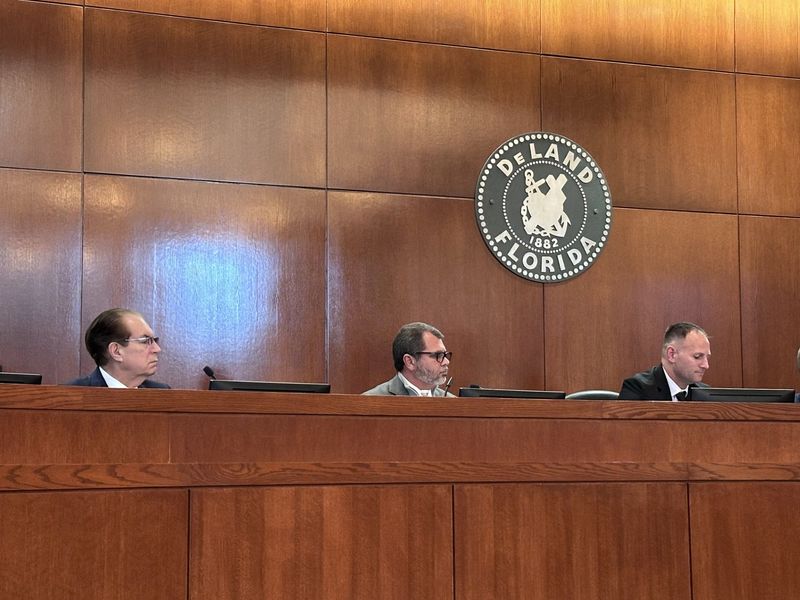TALLAHASSEE — For five years, Daytona Beach has been amassing millions of dollars in permits and licensing fees that’s mainly been tapped for a $590,830 building renovation, pickup truck purchases and a few other relatively small expenses.
The tally of unspent money has hovered around $11 million for four years, even though state auditors have told city officials repeatedly they have to spend the money as soon as possible or give it back to the taxpayers and developers who paid the fees.

Up to now those state government warnings came in letters sent to City Hall. On Monday Nov. 3, four top Daytona Beach city government officials received the admonishment face-to-face from a committee of state legislators in Tallahassee.
“This is going to have a ripple effect on every other request Daytona has, and potentially the county of Volusia in terms of how it’s perceived by those of us who watch the taxpayer dollars,” said state Sen. Jason Brodeur, a Republican who represents Seminole County and a small portion of Volusia County. “You’ve had five years to get serious about it. Please get serious.”
City Manager Deric Feacher, Deputy City Manager Jim Morris, Chief Building Official Glen Urquhart and Mayor Derrick Henry walked away from the Joint Legislative Auditing Committee without any immediate penalty or punishment for the city.
But the four Daytona Beach leaders undoubtedly received the message that if they were called back to the state capital in the future because the permit fee dollars still hadn’t been spent, or were spent improperly, they would face more than tough questions and anger.
One damaging consequence could be coming soon. With questions also raised over the past year by at least one Volusia County legislator about Daytona Beach’s spending of its community redevelopment area tax collections and COVID relief funds, it appears the city could have a hard time getting any state government money out of the 2026 state legislative session.
Daytona Beach told to fix the problem or return the money
Daytona Beach needs to quickly whittle its excess permits and license fees to $4.4 million or less to come into compliance with state law.
A $9.4 million proposal to build an addition to City Hall would drop the tally back into legal territory, but that project still doesn’t have a contractor, solid timeline or final City Commission approval. In March, three of the seven city commissioners voted against putting out a request for proposals to expand the 60,000-square-foot City Hall.
Henry told the seven state representatives and seven senators on the Joint Legislative Auditing Committee that Daytona Beach “is fully committed” to coming into compliance with state law.
The mayor said Daytona Beach experienced a surge in new development over the past five years, so building permit fee revenue spiked and led to the accumulated money.
Brodeur asked the Daytona contingent what was being done with the roughly $500,000 in interest income that was being earned off the $10 million of unspent permitting fees. Morris said neither he nor anyone else in the group could immediately answer that question.
“You don’t know where $500,000 is?” Brodeur asked. “I hope on your four-hour drive home you realize this is getting serious.”
“It’s difficult to swallow that it’s been a problem for five years,” said state Sen. Tom Wright, R-New Smyrna Beach.
Wright said he heard the city of Daytona Beach purchased 11 Ford F-250 pickup trucks with the permits and licensing fees, and it appears “you’re just trying to spend the money that belongs to the people.”
Urquhart said the larger trucks are less apt to get stuck in the mud, and the city can use them to haul a 24-foot boat for code enforcement.
When Urquhart said there wasn’t “that big of a price difference” between the Ford F-150s and 250s, Wright said the 250s are $10,000 more expensive.
“Most everything you’ve said today has been a stretch, and I’m not finished with you yet,” Wright warned.
Wright said “it’s public money,” and the auditing committee wants the problem resolved, “or we want the money.”
“Those are the two choices,” Wright said.
What does state law say about permits and license fee spending?
Current state law indicates that excess permits and licensing fees can be used to construct a building that houses a local government’s building code enforcement agency, or the training programs for building officials, inspectors or plans examiners associated with the enforcement.
If a local government has an unexpended balance of building permit fee revenue at the end of a fiscal year, it can also use the money to temporarily reduce or rebate building permit fees. A government can also carry the money into the next budget year if it’s going to be used to enforce the Florida building code, but the money carried forward can’t exceed the average of the permits and licensing operating budget for the prior four years.
Daytona Beach has carried forward millions of dollars for several years now, and that’s the why the state has been ordering the city to spend that excess fund balance.
City records indicate Daytona Beach had built up $5.76 million in unspent permits and licensing fees in 2020. That unspent total climbed to $7.86 million in 2021, $10.97 million in 2022 and $11.47 million in 2023.
The excess fund balance slid slightly to $10.85 million in 2024, records show. A written summary the city provided to the committee Monday didn’t list a current figure for the unexpended fund balance, nor did it clarify if the $9.4 million City Hall project would be totally funded by permits and license fees.
The only other project listed on the presentation was the $590,830 marina training facility rehabilitation. City officials say the building is used by permits and licensing staff to obtain continuing education certificates and licenses.
The facility also hosts meetings for the aviation, marine, and coastal enforcement units, as well as with outside agencies including Volusia County Emergency Management.
The city also noted in the summary that its building permit and inspection fees were waived three times since 2020, resulting in $5.5 million in fees being waived. That kept the unspent fee tally from rising by another $5.5 million, but it didn’t do anything to spend the money that was being carried over from one fiscal year to the next.
Plan to spend down permits and licensing funds fizzles
In May 2024, the city had a mix of $12.9 million worth of proposed and budgeted permits and license fund projects. The proposed projects included 17 pickup trucks that would cost close to $1 million, drones tallying $210,000, a $250,000 City Commission chambers upgrade and $250,000 for virtual desktop infrastructure.
Under budgeted items was about $4 million for land and facility acquisition; $3.1 million to renovate, furnish and equip a facility; $1.2 million for a mobile permitting center; $993,100 for a permits and licensing boat and boathouse; $660,000 for vehicles and equipment; and $400,000 for new permits and licensing staff.
Some of those projects came to fruition, but several did not. The mobile permitting center idea was dropped, as was the purchase of a Beach Street building that was to be used for permits and licensing staff.
For 18 months, city officials worked behind the scenes to line up the purchase of 230 N. Beach St. to use the building for the permits and licensing division. But in the summer of 2024 the deal started to unravel when the state Department of Environmental Protection launched an investigation into allegations of improper and dangerous asbestos removal inside the structure.
Questions were also raised about whether the city could use permits and licensing funds to buy an existing building, so a state attorney general opinion was sought.
Senior Assistant Attorney General Teresa Mussetto concluded in April that the city could not use excess funds to purchase already improved property with a building on it, or to pay for land acquisition, design, landscaping, parking lots, sidewalks and stormwater improvements.
The city had hoped to use $4.4 million of the permits and licensing money to buy the building, and another $3 million to renovate it. But after the attorney general opinion and DEP investigation the Beach Street deal was scuttled, and the city backed off of buying other buildings on Ridgewood Avenue it had looked at as backup plans.
Other Daytona Beach spending questioned
Daytona Beach city government leaders caught a glimpse of what was to come at the Nov. 3 meeting five days earlier at the Oct. 29 Volusia County legislative delegation meeting in DeLand.
A few of Volusia County’s state representatives and senators at the Oct. 29 meeting made it clear they want Daytona Beach and other local governments to follow spending rules more closely.
“We’re hot and heavy this year with the CFO helping us also, and our lieutenant governor trying to clean some house up,” Wright said at that Oct. 29 meeting. “There’s a lot of holes in the bucket, and we’re going after it.”
Earlier in last week’s Volusia County legislative delegation meeting, state Sen. Tom Leek challenged Daytona Beach Deputy City Manager Dru Driscoll on the city’s accumulated permits and licensing fees.
Leek, R-Ormond Beach, asked Driscoll how many years Daytona Beach has been under state audit for its excess permits and licensing fees. Driscoll said four years.
“Doesn’t the statute dictate what’s supposed to happen with these excess fees?” Leek asked.
“Correct. It outlines … ,” Driscoll said before Leek jumped back in with another question.
“For four years we haven’t been able to figure out what the statute dictates?” Leek asked.
Leek also challenged Driscoll last week on Daytona Beach’s spending of its community redevelopment area funds. Leek said it appears the CRA money is going to pay city staff, and not to improve redevelopment areas.
Leek cited Daytona Beach’s Ballough Road Community Redevelopment Area as an example. He said that CRA collected $290,000, and used $279,000 of that for city salaries. Just $21,000 was allocated for improving the Ballough Road area.
Leek asked what “the justification of keeping around a CRA” was when so little of the money it collected went for redevelopment.
Leek said when Florida’s local governments do things that are “so out of whack,” then the “state’s going to step in.”
After Daytona Beach officials asked the state late last year for millions of dollars for infrastructure projects, at a meeting in January Leek quizzed a Daytona Beach official about how Daytona Beach city commissioners spent COVID relief funds.
The mayor has been given $750,000 in COVID relief funds, and each commissioner has received $500,000 in COVID relief funds to spend on projects they choose. Leek asked why that money wasn’t being used for infrastructure projects.
You can reach Eileen at Eileen.Zaffiro@news-jrnl.com
This article originally appeared on The Daytona Beach News-Journal: Florida legislators unleash frustration on Daytona city government leaders
Reporting by Eileen Zaffiro-Kean, Daytona Beach News-Journal / The Daytona Beach News-Journal
USA TODAY Network via Reuters Connect
